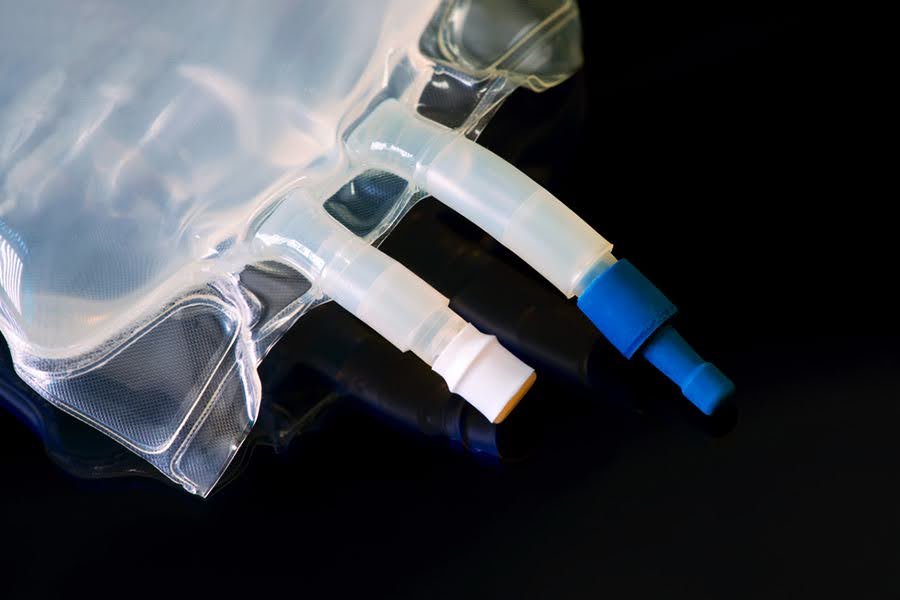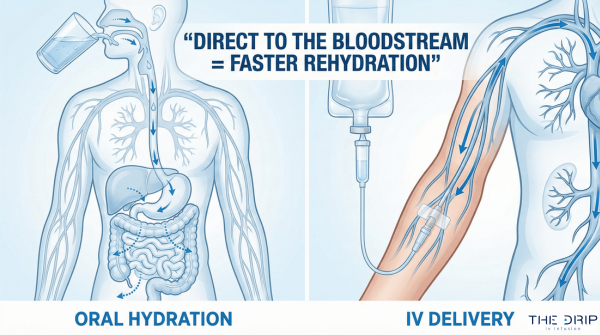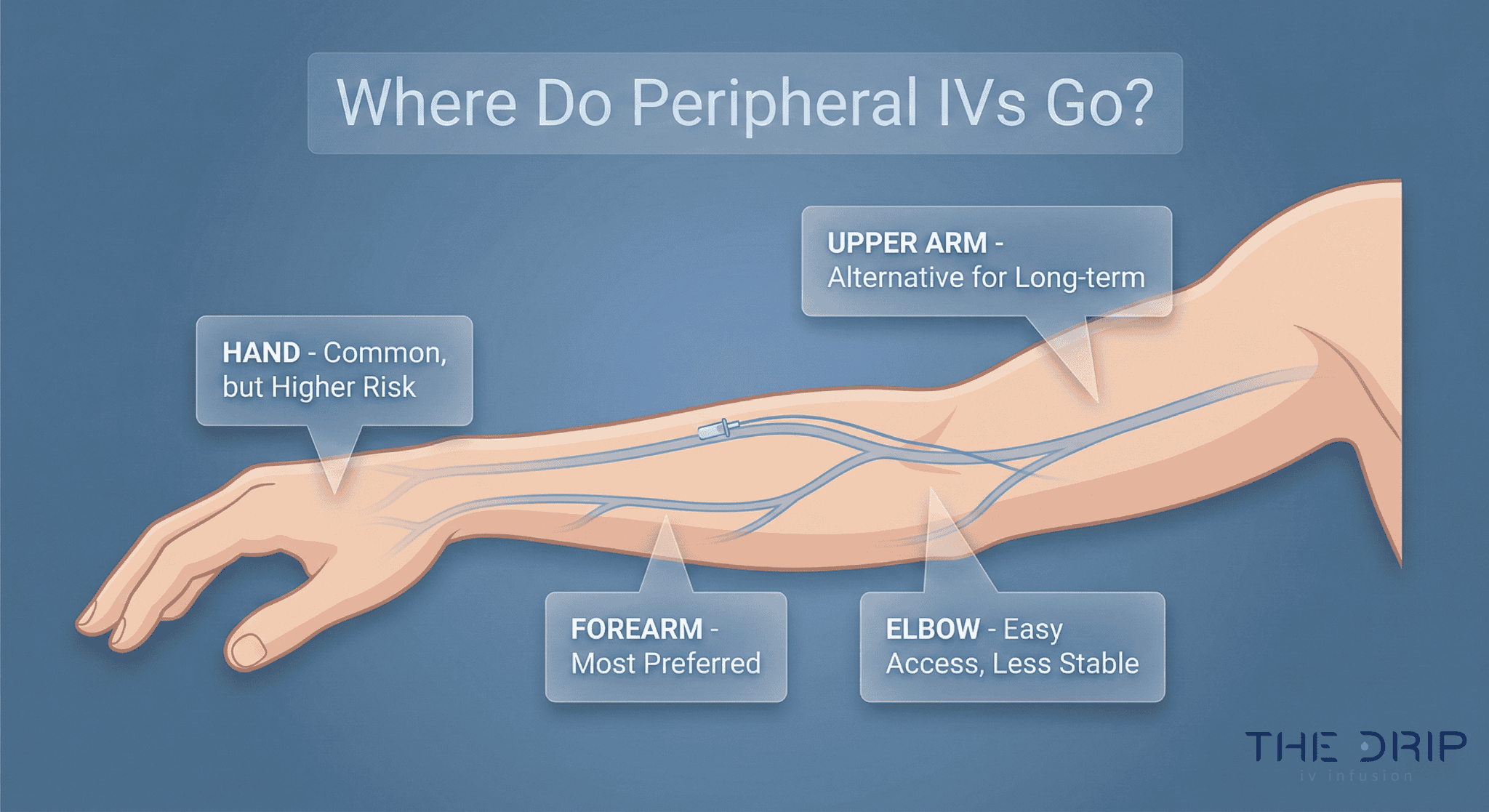IV treatments are increasingly popular nowadays. There are many different IV drips that treat specific conditions. Bolus is an IV drip that is different from a standard drip. That is why it is important to learn the reasons why is IV bolus given.
IV bolus is the application of an entire dose of medicine into the veins over a short time. It is given to patients who need support quickly.
This article will focus on the purpose, benefits, and conditions that require this type of treatment. Plus, it will address how to administer IV bolus.

Source: shutterstock.com / Photo Contributor: ANDRANIK HAKOBYAN
Why Is IV Bolus Given?
IV bolus is a single dose of any medication or vitamin given over a short time. It is a direct injection into a patient’s vein through an intravenous line. This type of IV therapy uses an open fluid line. It differs from a standard IV drip because the latter uses a closed fluid line and makes the fluids enter the body slowly.
IV bolus’ purpose is to provide rapid and immediate relief to patients experiencing acute symptoms of life-threatening conditions or patients needing quick relief from symptoms like flu, hangover, food poisoning, etc.
So, IV bolus is the best mobile IV therapy for quick relief and recovery.
The benefits of IV bolus administration
Faster onset of drug action
IV bolus administration allows the medication to reach the bloodstream directly, bypassing the digestive system and avoiding the need for absorption. This leads to an immediate effect and quicker action than other oral or intramuscular administration methods.
Precise dosage
With IV bolus, nurses control the exact medication dosage the patient receives. They can administer the medication in precise amounts, ensuring the patient receives the right therapeutic dose.
Efficient drug delivery
The direct injection of medication into the vein ensures that the drug is delivered efficiently and quickly. This allows the targeting of organs and tissues quickly, which makes this treatment efficient.
Easy patient monitoring
IV bolus administration allows nurses to check the patient’s response to medications. They observe the vital signs in real-time and can adjust the dosage or treatment if needed.
Flexibility
As a quick shot of medicine, an IV bolus can be used for pain relievers, antibiotics, antiarrhythmics, and other types of medications.
The great thing about IV bolus is that it offers flexibility by allowing nurses to quickly and easily deliver the right medication to patients based on their specific needs.
IV bolus is often considered more reliable than oral or intramuscular injection. It allows for direct administration of medication into the bloodstream, helping it take effect more quickly and consistently. It also offers precise control over the dosage, ensuring that the full amount of medication is delivered.
Conditions that Require IV Bolus Administration
IV bolus administration is commonly used in emergencies such as cardiac arrest, severe hypotension, anaphylaxis, pulmonary edema, heart attack, and stroke. In such cases, IV bolus administration can quickly deliver necessary medication to the affected organs and tissues, potentially helping to stabilize the patient’s condition.
Cardiac arrest
This is a condition when the heart stops beating all of a sudden. This leads to loss of blood flow and oxygen to vital organs. IV bolus with medications to restore blood circulation and heart rhythm is needed in this situation.
Severe hypotension
Severe hypotension, or low blood pressure, happens because of dehydration, infection, or bleeding. Receiving an IV bolus with fluids like normal saline may help increase the blood pressure.
Anaphylaxis
This serious allergic reaction leads to difficulty breathing, swelling, and decreased blood pressure. In these moments, the patient must receive epinephrine through IV bolus. This medication may reverse the allergic reaction quickly and prevent life-threatening complications.
Pulmonary edema
Pulmonary edema happens when fluid accumulates in the lungs, leading to breathing difficulties. In this case, the patient must receive diuretics through IV bolus to remove excess fluid from the body and improve breathing.
Heart attack
A heart attack occurs when a blockage in the coronary arteries cuts off blood flow to the heart muscle. This condition requires an IV bolus as well. The patient needs aspirin, thrombolytics, or nitroglycerin, which may help restore blood flow and prevent further damage to the heart muscle.
Stroke
A person has a stroke when the blood flow going to the brain is interrupted. This leads to neurological deficits. In this case, IV bolus with clot-busting medications given within a specific timeframe may help dissolve the clot and restore blood flow to the affected brain area.
Techniques for Administering IV Bolus
Proper preparation of medication, equipment, and technique is crucial for administering IV bolus safely and effectively. Before administering an IV bolus, the medication must be properly prepared and drawn up into a syringe. The equipment required for administering IV bolus includes an intravenous catheter, sterile saline solution, and a syringe for administering medication.
The proper technique for administering IV bolus involves:
Disinfecting the area for injection.
Checking the medication dosage.
Drawing up the medicine into the syringe.
Removing air bubbles
Slowly injecting the medication into the vein while monitoring the patient for adverse reactions.
A trained nurse must perform IV bolus administration to ensure maximum safety and efficacy.

Source: shutterstock.com / Photo Contributor: MedstockPhotos
Conclusion
After reading this article, you probably understand why is IV bolus given. As an intravenous treatment given in a short time, IV bolus might be effective for patients needing a fast relief of symptoms.
IV bolus is beneficial because it bypasses the gastrointestinal system, making it have quicker effects on the body than oral and intramuscular administration. This flexible method can be used with different medications depending on the patient’s needs.
Nurses can control the dosage and give the patient a precise dose of the medication needed. They then check how patients react to and adjust the IV bolus by adding other medicines for specific conditions.
Some common conditions that require IV bolus are cardiac arrest, severe hypotension, anaphylaxis, pulmonary edema, stroke, and heart attack.
Finally, nurses should accurately follow the appropriate techniques for the proper administration of IV bolus.




